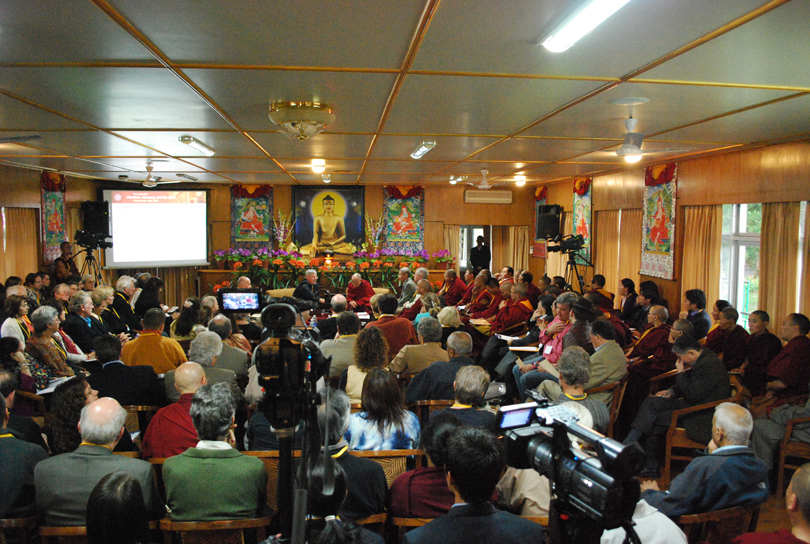 Dharamshala: The global financial crisis shows just how vulnerable our economic systems are to greed and the ramifications of human decisions. Are you concerned by the current economic situation and interested in alternative approaches?
Dharamshala: The global financial crisis shows just how vulnerable our economic systems are to greed and the ramifications of human decisions. Are you concerned by the current economic situation and interested in alternative approaches?
The forthcoming XX Mind & Life conference will focus on exploring alternative approaches of "altruism and compassion" to the economic systems that reward not only individuals but our global societies.
The conference will bring together His Holiness the Dalai Lama with the leading minds in economics, neuroscience, psychology, anthropology, philosophy and contemplative science in Zurich, Switzerland, from April 9-11, 2010. The event will be co-sponsored by Switzerland's largest university, the University of Zurich, which is highly reputed for its ground-breaking research, particularly in molecular biology, brain research and anthropology.
Over five sessions they will explore how economic decisions are made as well as discuss new economic systems that reward fairness and co-operation while at the same time addressing the most urgent societal and environmental issues. (Click here for Conference Overview)
His Holiness will also give a public talk on "Universal Responsibility and Economics" at Hallenstadion on April 11.
The Mind and Life Institute was co-founded in 1987 by His Holiness the Dalai Lama, neuroscientist Francisco J. Varela and American businessman Adam Engle for the purpose of creating a rigorous dialogue and research collaboration between modern science and the world's living contemplative traditions, especially Buddhism.
Eleven of the Mind and Life dialogues were convened at the office of His Holiness the Dalai Lama in Dharamsala, and eight in Europe and the United States.


![Tibet has a rich history as a sovereign nation until the 1950s when it was invaded by China. [Photo: File]](/images/stories/Pics-2024/March/Tibet-Nation-1940s.jpg#joomlaImage://local-images/stories/Pics-2024/March/Tibet-Nation-1940s.jpg?width=1489&height=878)















